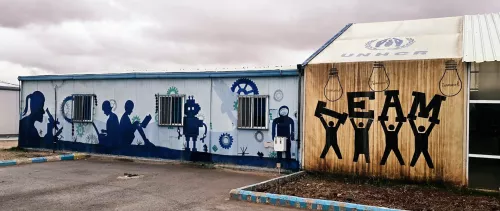
Cyberthreats are not new, but in the midst of the global COVID-19 pandemic, the risks to society, the economy, and to our children, have multiplied enormously.
Cybercriminals and other malign actors are using the COVID-19 crisis to launch social engineering attacks: individuals are facing online threats and harms from increased fraud, phishing, and extortion whilst ransomware attacks have compromised mission critical systems, such as governments, companies, media facilities, and even the United Nations, including the World Health Organization (WHO). Tech companies have seen a spike in phishing traffic of 300 per cent across their networks. Tens of millions of daily malware emails and COVID-19 related spam massages were detected by social media, such as Google in just one week.
Meanwhile, there has been an alarming increase in online child abuse, which has led to the doubling of suspected online child exploitation cases reported to the US National Center for Missing and Exploited Children.
“I suspect we’re only seeing the tip of the iceberg, with many countries simply lacking the technical and human capacity to track the level of malicious content passing through their networks,” said Doreen Bogdan-Martin, Director of ITU’s Telecommunication Development Bureau at the fourth Digital Cooperation webinar on ‘Online Safety and Security during COVID19’.
“Can we envisage a future where we get the upper hand, or where we stamp out cybercrime and online abuse?” asked Director Bogdan-Martin.
Protecting vulnerable populations
“The negative impact on our digital safety and security affects everyone, in particular the most vulnerable, our children” said Fabrizio Hochschild, Under Secretary-General and Special Adviser to the Secretary General on Digital Cooperation.
“This is the time to do everything in our power to keep children safe online. The virus knows no borders. And online perpetrators respect no borders. Therefore, we need to work together across borders,” said Her Majesty Queen Silvia of Sweden. “Making sure that the recommendations that have been developed are turned into concrete action, is one very good way to start.”
Her Majesty welcomed global efforts to protect children online, highlighting the Broadband Commission COVID Agenda for Action, the joint technical note on COVID-19 and the joint call for action to protect children during COVID-19 by several global leaders.
International collaboration
Protecting vulnerable populations and critical infrastructure from cyberthreats during the COVID-19 pandemic calls for proactive action by multi-stakeholder action, greater capacity building to reduce vulnerabilities in underserved areas, and cross border collaboration, agreed leaders assembled for the webinar.
Catherine De Bolle, Executive Director of Europol, highlighted the importance of monitoring the impact of the COVID19 pandemic on the cybercrime landscape, and advocated for investing in preventive educational campaigns and law enforcement activities to tackle increased cyber risks – in particular online child abuse.
“The right information at the right time can save lives,” said Ghada Fathi Waly, Executive Director, United Nations Office on Drugs and Crimes (UNODC). “This problem brings together the very actors we need to help improve global responses, so that children and vulnerable groups can be safe.”
Continue reading on ITU News

